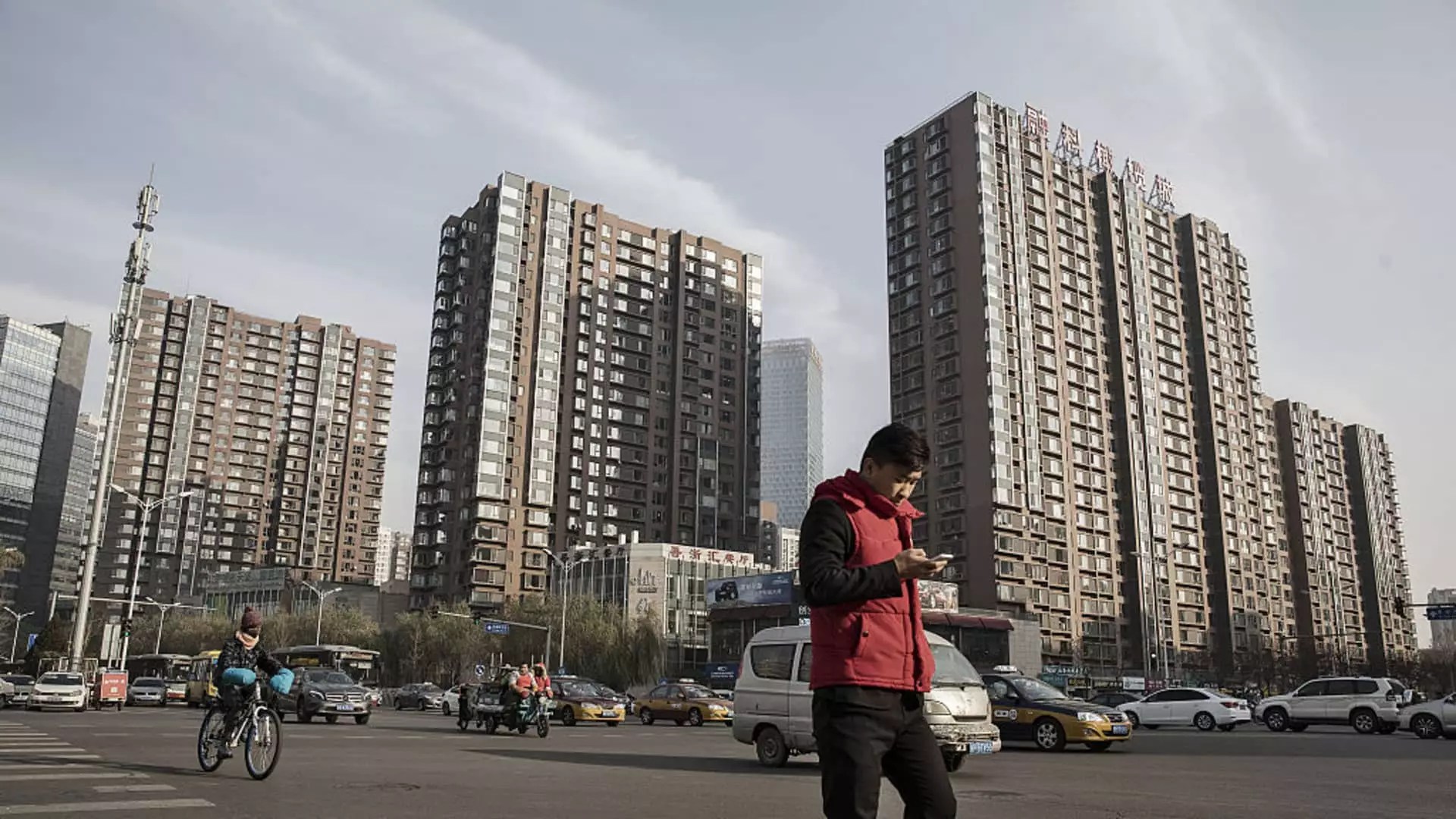The real estate sector in China has been a critical pillar of the nation’s economy, historically accounting for over a quarter of its GDP. However, the landscape has drastically changed, with the sector experiencing significant downturns since 2021 due to stringent regulations aimed at curbing high debt levels among developers. The turmoil has resulted in defaults, unfinished projects, and eroded consumer confidence. In a decisive response, the Chinese government has announced a series of financial support measures aimed at rejuvenating this essential sector.
In a recent press conference, Ni Hong, the Minister of Housing and Urban-Rural Development, outlined an ambitious plan to facilitate liquidity in the real estate market. The proposal includes more extensive financial backing for developers that are part of a designated “whitelist.” This initiative will expedite the lending process for a staggering 4 trillion yuan (approximately $561.8 billion) earmarked for such projects. So far, banks have already approved 2.23 trillion yuan in loans, indicating robust governmental backing aimed at stabilizing the sector.
In conjunction with these lending initiatives, Chinese financial authorities have made it easier for local governments to issue special bonds for land purchases. This change aims to invigorate more substantial investments into the real estate market, enabling localities to finance not just new construction but also bolster existing housing inventory. With such comprehensive measures, the government appears intent on providing much-needed relief to a sector that has suffered from regulatory tightening in recent years.
The immediate market response to the financial stimuli was intensely positive, with property stocks experiencing a notable surge. The Hang Seng Mainland Properties Index, for instance, saw a rise of over 2%, while the CSI 300 index for Mainland China real estate witnessed gains nearing 5%. These movements signal a burgeoning confidence among investors who view these policy announcements as a potentially pivotal turning point for an ailing market.
However, it’s essential to recognize that investor sentiment remains mixed. Following a pronounced decline in property valuations — the HSMPI has been reported to have lost over 80% of its value since its January 2020 peak — the challenges ahead are formidable. Investors are cautiously optimistic, grappling with the uncertainty of whether the government’s interventions will indeed generate the necessary economic stimulus to reverse the trend.
As a response to ongoing economic pressures, the Chinese government is also taking long-term measures to reshape how housing is governed. Recent policy shifts, including reductions in down-payment ratios and the easing of purchase restrictions for non-local buyers, indicate that authorities are striving to stimulate demand in what has become a stagnant market. The recent actions taken by more than 50 cities to roll out supportive measures reflect a concerted effort to revitalize real estate and boost consumer confidence, which had plummeted amid previous uncertainty.
Yet, the reluctance of homebuyers to engage with the market remains a critical challenge. Although the policies are designed to stimulate demand, the psychological aftermath of previous clampdowns and economic instability lingers. This scenario necessitates a careful balancing act for policymakers; while short-term financial interventions may offer immediate relief, enduring recovery will require a fundamental shift in public perception and market dynamics.
The intervention of the Chinese government in the real estate sector marks a significant pivot in economic policy and reflects a growing recognition of the sector’s importance to overall economic health. The measures announced by Ni Hong and other officials encapsulate both immediate financial relief and broader strategic shifts aimed at stabilizing an essential component of China’s economy.
However, the path forward remains laden with uncertainty. While the measures provide an optimistic outlook for investors and homeowners alike, the effects of these interventions in fostering a sustainable recovery are yet to be determined. In an environment fraught with volatility, the next steps taken by the government and the reactions of the market will be crucial in shaping the future of China’s real estate landscape.


Leave a Reply